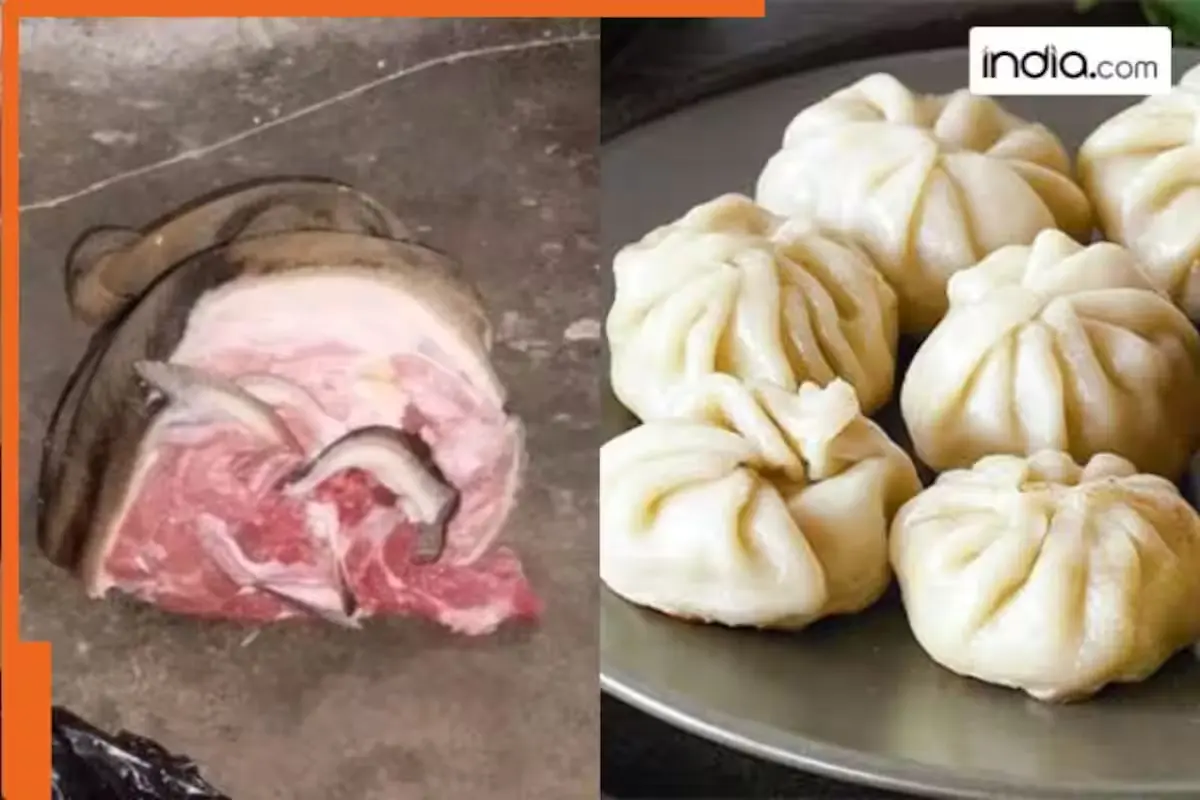
The discovery of the dog’s head immediately sparked fears that dog meat may have been used in the momos or spring rolls.
Mohali Momo Factory Horror – In a deeply unsettling revelation that has sent shockwaves across Punjab and beyond, a momo and spring roll manufacturing unit in Mohali was found to be operating under grotesque and unhygienic conditions. The most horrifying discovery? A severed dog’s head stored in the refrigerator—raising alarming questions about food safety, ethics, and the regulation of street food vendors.
The Raid That Uncovered a Nightmare
The incident came to light during a two-day crackdown led by the Mohali Municipal Corporation and the District Health Department, targeting illegal food production units in Mattaur village. The operation was part of a broader initiative to ensure food safety compliance among roadside vendors and small-scale manufacturers.
What officials found inside the momo factory was nothing short of revolting. The unit, operating out of a residential house, was supplying momos and spring rolls to vendors across Chandigarh, Panchkula, Kalka, and surrounding areas. But behind the scenes, the food preparation process was a health hazard waiting to explode.
What Was Discovered Inside
Upon entering the premises, health officials were met with a stench that hinted at the horrors within. The refrigerator contained:
- A severed dog’s head, believed to be from a pug breed.
- Rotten vegetables, including fungus-covered cabbage.
- Maggot-infested chutney stored in open containers.
- Reused cooking oil, dark and foul-smelling.
- Spoiled meat, kept without refrigeration protocols.
Even more disturbingly, momos and spring rolls were found stored under beds and tables, some of which had been chewed by rats. The factory’s hygiene standards were not just poor, they were virtually nonexistent.
Was Dog Meat Used in the Food?
The discovery of the dog’s head immediately sparked fears that dog meat may have been used in the momos or spring rolls. However, officials have urged the public not to jump to conclusions. The Veterinary Department has taken custody of the remains for forensic analysis.
Initial statements suggest that the dog meat may have been intended for personal consumption by factory workers, rather than being used in commercial food production. Still, the presence of such material in a food facility is a gross violation of ethical and sanitary norms.
Legal Action and Penalties
The factory owner has been slapped with multiple fines:
- ₹12,000 for unauthorized animal slaughter.
- ₹10,000 for stocking plastic bags in bulk, which is prohibited under local environmental laws.
In addition, over 60 kg of foul-smelling frozen chicken and 35 kg of momos and spring rolls were seized and destroyed on the spot. Samples of food items have been sent to certified laboratories for further testing.
Mohali Civil Surgeon Dr. Sangita Jaina confirmed that a detailed report has been submitted to the Deputy Commissioner and local police, recommending legal action under the Food Safety and Standards Act.
Public Reaction: Outrage and Fear
The incident has ignited a firestorm of public outrage. Social media platforms are flooded with posts expressing disgust, anger, and fear. Many residents of Mohali and nearby cities have vowed to boycott roadside momos, a popular street food that had until now enjoyed widespread popularity.
Parents are particularly concerned, as momos are a favorite snack among schoolchildren and college students. The idea that such food could be prepared in rat-infested, disease-ridden conditions has shaken public trust in local food vendors.
The Bigger Problem: Unregulated Food Units
This case is not an isolated one. Across India, thousands of small-scale food units operate without proper licenses, inspections, or hygiene protocols. The Mohali incident has exposed the gaping holes in food safety enforcement, especially in semi-urban and rural areas.
Experts argue that while raids and fines are necessary, they are not enough. There needs to be:
- Mandatory registration of all food vendors.
- Regular inspections by health officials.
- Public awareness campaigns to educate consumers about safe food practices.
- Whistleblower mechanisms for reporting suspicious food operations.
Mohali Momo Factory Horror – What Can Consumers Do?
In light of this incident, here are a few steps consumers can take to protect themselves:
- Avoid eating from unlicensed vendors or stalls that appear unhygienic.
- Ask for FSSAI certification when buying packaged or bulk food.
- Report suspicious food practices to local health authorities.
- Educate children and family members about the risks of consuming street food from unknown sources.
A Wake-Up Call for Authorities and Citizens
The Mohali momo factory case is a grim reminder of the consequences of neglecting food safety. It’s not just about one factory or one vendor, it’s about the entire ecosystem of food production and consumption. Authorities must act swiftly and decisively, but citizens too must remain vigilant.
Food is not just fuel, it’s trust. And when that trust is broken, the consequences can be deadly.
1 thought on “Mohali Momo Factory Horror: Severed Head of Dog Found Amid Rotten Ingredients”
Comments are closed.